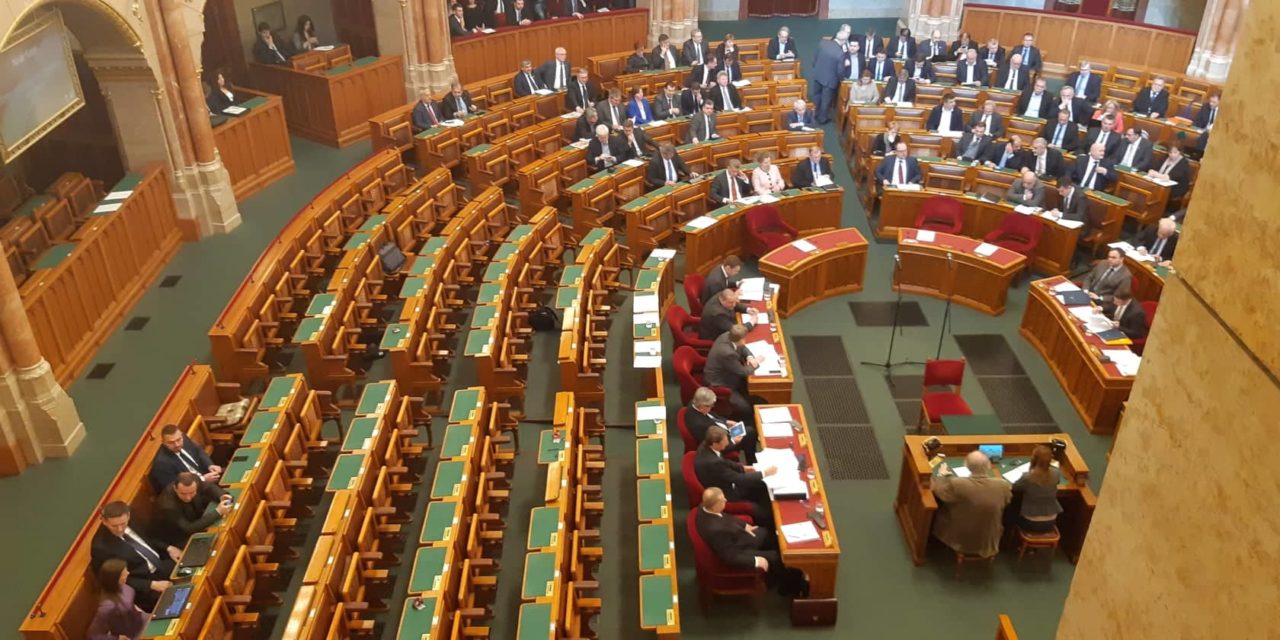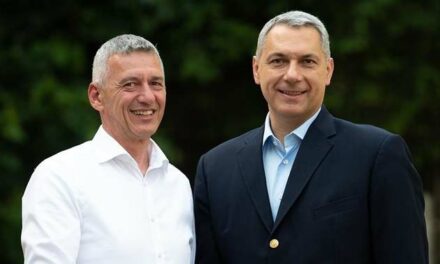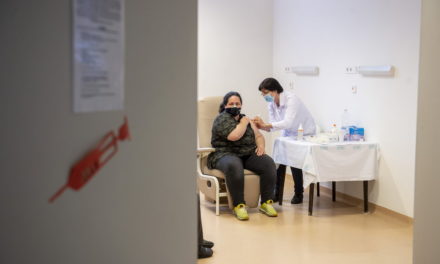The representatives of the opposition parties withdrew from the parliament and did not take part in the voting for the increase of the minimum wage and the tax cuts for next year - amounting to a total of HUF 1,500 billion. István Hollik drew attention to the fact that since the regime change, it has not happened that the opposition did not vote for the increase of the minimum wage.
The representatives of the opposition parties attended the press conference of Péter Márki-Zay on Kossuth Square.
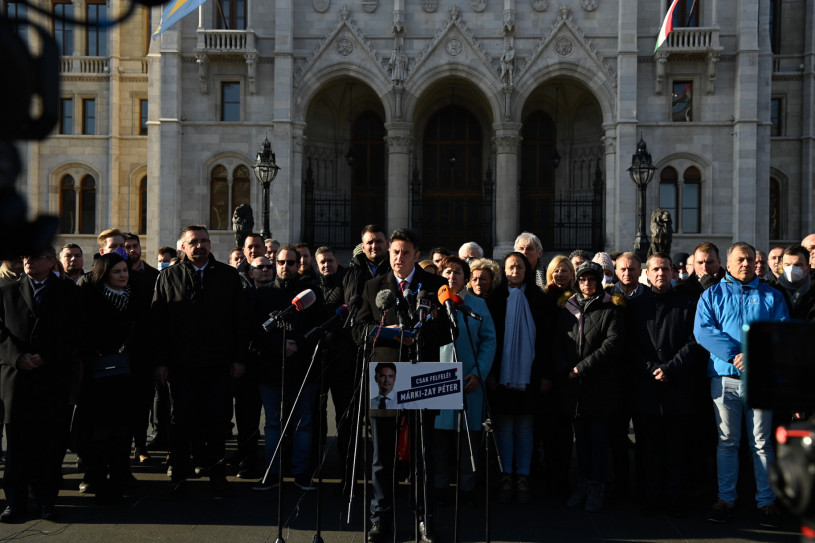
Péter Márki-Zay and the left-wing representatives on Kossuth Square/Forrás/vadhajtasok.hu
Péter Márki-Zay has spoken on several occasions that he does not consider the minimum wage necessary. Péter Márki-Zay, the candidate for prime minister of the left-wing alliance, hopes that in the event of a change of government, there will be no larger increase in wages and pensions, several media previously wrote.
The candidate for prime minister of the left-liberal side previously boasted that he lived in America and Canada, so he is the head of a family who knows foreign examples. According to Márki-Zay, raising the minimum wage would make Hungarian labor more expensive and would "not create prosperity, but endless misery".
Now thank God regardless of them, even against them:
In Hungary, from January 1, 2022, the minimum wage will increase to HUF 200,000 and the guaranteed minimum wage to HUF 260,000.
"Thanks to the increase, from the first of January next year, the minimum wage will be higher than the average wage in the Gyurcsány-Bajnai era. Between 2002 and 2010, the real value of the minimum wage decreased by 2 percent in Hungary, while it increased by 30 percent in the other V4 countries. There are no two lefts. The same people who raised the minimum wage by only HUF 23,500 during their 8-year government want to return. Since 2010, the purchasing value of the lowest wage has almost doubled," the ruling party said in its statement.
As a reminder:
The minimum wage was only HUF 71,500 in 2009, but from January 2022 it will reach HUF 200,000, which is almost three times the amount in 2009 (280 percent).
The guaranteed minimum wage was HUF 87,000 in 2009, and will be HUF 260,000 in 2022, three times the 2009 amount.
An increase in the minimum wage and the guaranteed minimum wage drives up other wages as well as the amount of other benefits and subsidies.
Public employment wages will also rise significantly in 2022. In addition, the increase in the minimum wage affects, among other things, the amount of sick pay, jobseeker's allowance and gyed. By raising the minimum wage to HUF 200,000, it increases:
the maximum amount of the childcare fee (gyed) (The maximum amount of the gyed will thus reach HUF 280,000 gross, it has more than doubled in 10 years. This year, the maximum amount is HUF 234,000);
the student allowance (in the case of a bachelor's degree, it increases to HUF 140,000 gross);
also the home care fee (gyod) for children. (It will be HUF 180,000 net in 2022. In 2019, it was HUF 90,000 net. In comparison, the care fee for children under 18 was only HUF 28,500 in 2010.);
the maximum amount of the grandparent's gyed (Like the gyed, its maximum amount is expected to be HUF 280,000 gross);
the daily maximum amount of sick pay;
the maximum amount of the jobseeker's allowance (With the increase in the minimum wage, the maximum available amount of the jobseeker's allowance also increases, from HUF 167,000 gross to HUF 200,000);
in connection with certain diseases, the employee tax base reduction discount (From 2019, the government will encourage market companies to employ people with impaired working capacity with an expanded contribution discount system. Currently, around 150,000 people with impaired working capacity are working. They are entitled to a tax discount equal to 5 percent of the minimum wage. This will be monthly It will be HUF 10,000.)
"Péter Márki-Zay is like someone who has been programmed by globalist forces, because he speaks without any knowledge of economics. Repeat the international mantra one on one. On the other hand, the patriots, including the Hungarian government, keep in mind that as much of the generated income as possible stays at home. And the interest of the globalists is to take as much money as possible out of the country. Two completely separate worlds are facing each other," Imre Boros told Magyar Nemzet earlier regarding Márki-Zay's statements.
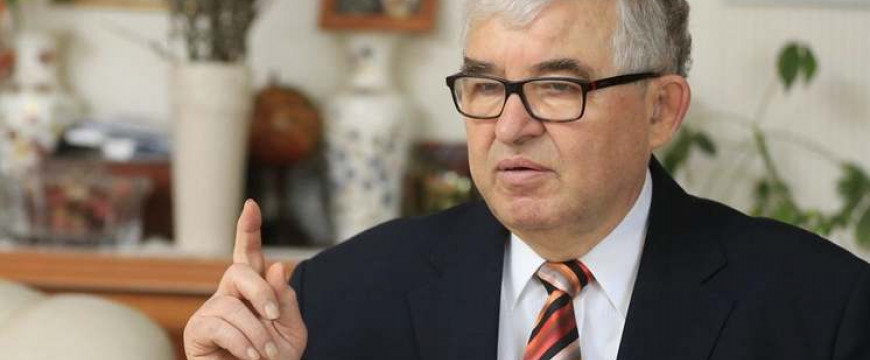
Imre Boros/Source/Flegmagazin
The economist then emphasized: in order to generate more income, demand in the country must be increased.
This is done by people who live on wages and salaries, and secondly by pensioners. Businesses light the rocket, but this also requires an increase in wages.
"Global powers don't like this, as they are interested in siphoning off income. For this, the money needs to be taken from these actors primarily through taxes. Then the state coffers will become indebted, and austerity may come. Péter Márki-Zay perfectly meets this expectation, but no one should assume that he expresses his own thoughts," the expert explained to Magyar Nemzet.
Source: mandiner.hu/ magyarnemzet.hu
Featured image: origo.hu

